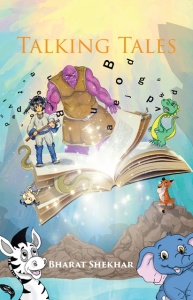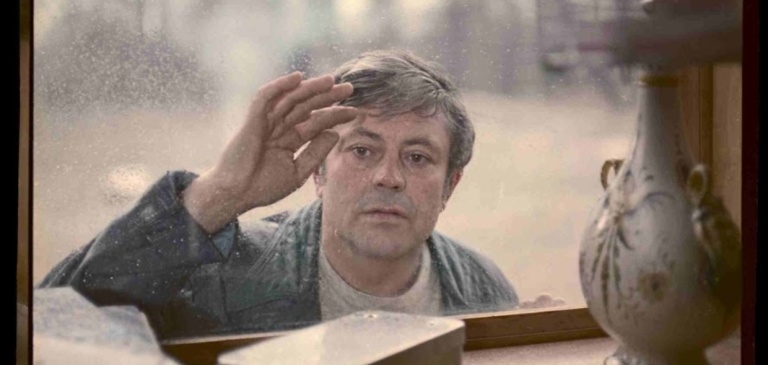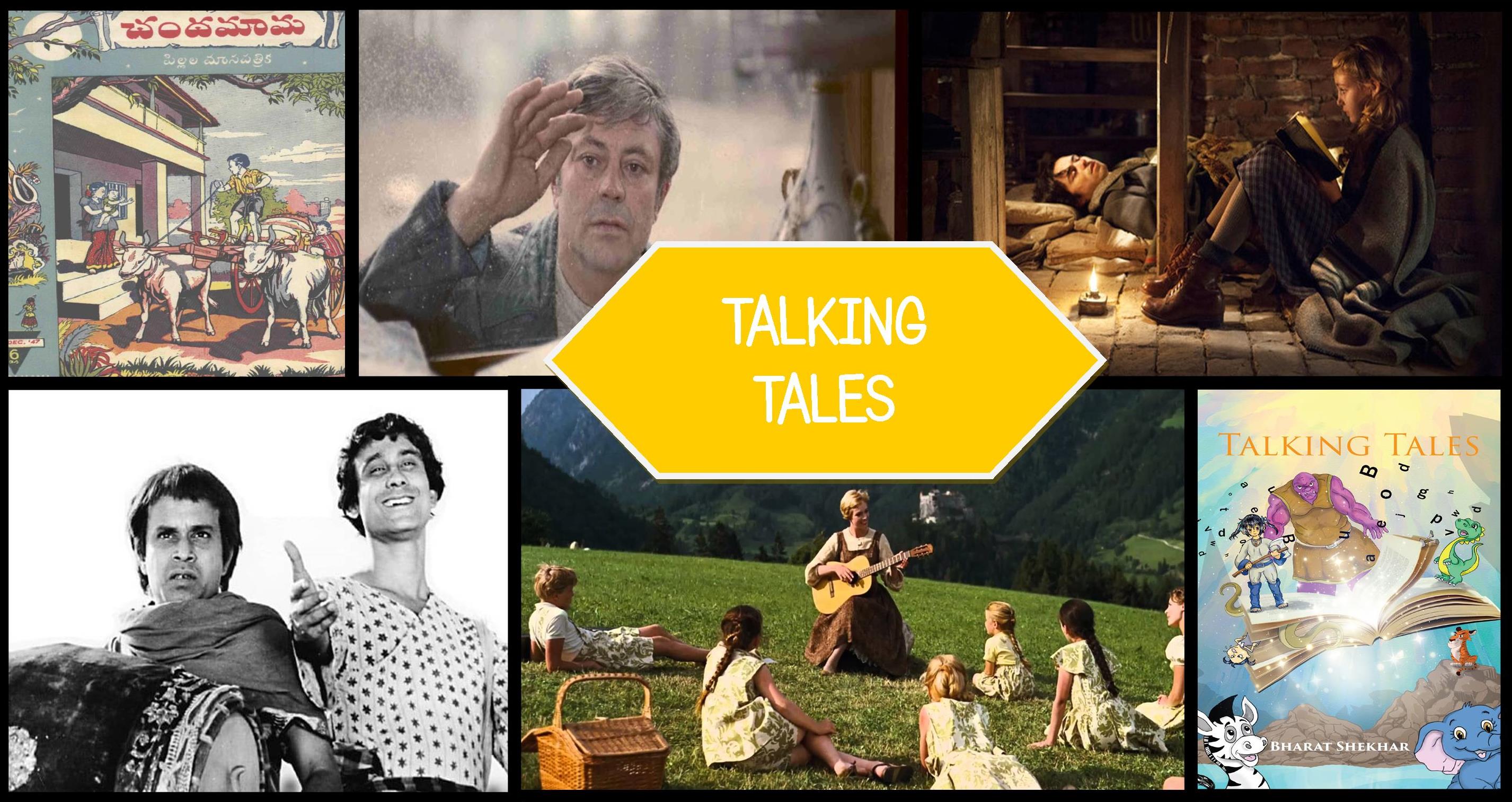The genre of literary writing for children is perhaps the most challenging as well as the most fulfilling for the creative mind. In the piece that follows we undertake a journey to the far off land of imagination, creativity and a world filled with memories of a time when we were little children.
Amit Sengupta – a Noted Writer and Columnist, lives in Delhi.
Perhaps the most difficult of creative writing as a literary genre are children’s books. The most beautiful and magical of the books for children are often a wonderful read for adults too; the twilight zone between time past, time present and time future suddenly becomes a rainbow coalition. It enters our eclectic subconscious and makes an adult a child once again; the sound of laughter of the innocence of childhood moving like the humming sound of the distant train on the railway tracks across the kash flowers and the endless horizon of Bengal’s lucid green rural landscape in Satyajit Ray’s Pather Panchali, even as the backdrop twinkles, tingles and tinkles with the brilliant music and soundtrack of a young Ravi Shankar. That is why those who have watched Sonar Kella, Goopi Gayeen Bagha Bayeen, or Hirak Rajar Deshe, suddenly go back into time and space, defying the mechanical calendar and the baggages, clichés and prejudices of life’s relentless and ruthless machine, and enter the wondrous time capsule, where lovely Bengali sweets fall from the sky to stop a war on the battlefield, and the king leaves his throne and runs in absolute glee, shouting: chooti… chooti… chooti.. which means, both, a holiday, and liberation from the job of a monarch.

That is why when you read the recent book for children by my old JNU buddy Bharat Shekhar (Talking Tales, published by Life Positive Books), with six short and epical stories, touching the most innermost chords of your lost childhood, like Beethoven’s Ode to Joy, as much as the sublime songs of Sound of Music, you suddenly realize that you have grown old, you have grown old, and you are now wearing your trousers rolled, even while there are miles to go before you sleep and the writing on the wall is no more a metaphor. It is as real as it gets.
You also remember a kaleidoscope of fascinating memories, which float like hope floats, in the buried layers of your aesthetic inner zones, like the sound of mother’s bangles, the smell of kerosene on the stove, the first boiling storm of the rice, the shuffling of her feet and the smell of her saree, the light of the full moon on a terrace where one ghost story moves into another terrace like the six stories of ‘Talking Tales’, where morning has not yet broken and the last, lilting melody songs of the sublime oldies from Bombay cinema are playing on the old Murphy radio, even while dew drops enter the mosquito net on a soft summer night, making your eyes moist with teenage desire, and you know that one day you will read a poem by Jibananda Das where she will come after midnight with a half-eaten orange and enter your mosquito net, like the lyrical magic of Banalata Sen, another classic by the same poet. Talking Tales, therefore, takes you back to both nonsense, sense and sensibility, rhyme and lyrical prose, prose as poetry and poetry as abracadabra which has no head or tail, so much so the book could very well have been called Talking Tails.
Here you hang around the tale or the tail, and you remember Sukumar Ray’s epical nonsense rhyme: Aabol Taabol, like the ghosts in Ray’s films, or the mystery of the walls of golden fort at Jaisalmer reeking of mysterious stories from the past, the sand hiding the desert full of titillating stories.

The past comes back as both mystery and nonsense, and fills you with the tide of the sea on a full moon night, and you become suddenly pure like an untouched river, the water moving through your eyes and fingers like saline waters, moist tears, lips, flushed cheeks and kisses. And you remember the smell of old books, with a leaf or flower buried inside its wooden, yellow pages, like the bark of the tree, the falling of the leaves in autumn, the blooming of flowers in the spring, the music of Vivaldi in the four seasons, the fragrance of earth after the first rain even as the parched earth resembles the deepest landscape of your heart. You stand there, as in Tarkovsky’s Solaris, and you remember that the image you loved has been destroyed forever, and you fall on your knees, accepting the rain with an open heart and a prayer and a blessing, once again humane, humbled, assimilated, as moist as the mud, as mud as mud can be.
Aabol Taabol: The nonsense of sense, sensitivity, sensibility, serenity, synthesis, symphony, singularity, seeking nothing but that moment of revelation as healing. You heal yourself and wait for another day. Tomorrow is another day, and you are alive and you are lucky.
Writes Bharat:
When reality was a dream-song
Luminous flutter of glow worms
Exchange golden winks
Around the Shahtut and Imli trees.
Inside the house
Jugnu lights entered the electric bulb,
Then flowed out
When grandfather clicked on the old fashioned
Round black switch.
From the high ceiling
It wafted down and
Set aglow with a soft halo
Baba’s bald head.
And its ever-lingering emanation
Of Amla hair oil,
Which to a small boy
Was surely the fragrance that graced Elysian fields.
Baba adjusted his dhoti
And sat on the bed.
We crowded around him,
Eager puppies frolicking, jockeying to be as close as they could
To their pied piper of stories and tales
Of trails, travails and joyful sails.
‘Once upon a time…’ he began…
Once upon a time in a magazine called Chandamama, the ghost would return to its favourite tree after the end of the story. In the beginning was the end, always, as inevitable as the ghost returning to his residence on earth.
Once upon a time, a villager would tie a potli around a stick, hold it on his right shoulder, and walk out into the landscape, wanting to explore new rivers, oceans, plateaus, water bodies, villages and small towns, shady inns where you sleep with one eye open, unknown homes where food will be shared, and the shadow and shade of a tree where he would rest for a while. It was called ‘Deshaton’ those day; travelling through your desh, your country, your imagined homeland. Once upon a time, kids would refuse to step down from the bed because the ghost is hiding under the bed and will grab your feet the moment you dare to come down. Oh! What great joy of artificial fears. And fantasies.
Once upon a time on an empty railway station in a dense forest in Dudhwa, a lone station master meets a tiger as he cycles down to his little room plus office in this vast expanse of desolate silence, with nothing but the sounds of the leaves of the trees and the birds in the night keeping him company. The tiger refuses to move away. So he waits. He waits. The cycle between him and the tiger, his only ceasefire zone. For an eternity. The animal and the man, waiting for Godot. And then the tiger disappears into the forest, and he cycles down the slope, as fast as he can, reaches the lonely railway platform, where only one slow train comes in the night, lights his lantern, and smiles. Life is like this only.
Once upon a time little Sally Saltopus, saves the life of a huge dinosaur, and all the dinosaurs celebrate Sally Saltopus, and the villain of the piece transforms his heart and becomes a good man because Sally saves his sister, and he lifts her up in his gigantic shoulders and little Sally suddenly sees the entire world from the top, as if she is in a space station, or riding a rocket in the sky. “For once Sally was taller than the tallest dinosaur in her class. And she thought, ‘Hmm… So that’s what the earth looks like high up here! The trees look like shrubs. The shrubs look like grass. And… and I can hardly make out the blades of grass at all. Ooh! It’s so high that I feel quite giddy. She spoke aloud, ‘Ahoy. I say please put me down. I feel like an airy fairy up here. That may be good for some, but I don’t like it.’ Sally was never again sorry about being small. (Talking Tales)
Small is beautiful. Small is truly beautiful. In the beginning was not the word. In the beginning was ‘small’.
Even during the worst phase of Stalinist censorship in Soviet Russia, where a poem as a caricature of the dictator’s regime could make you disappear forever, or condemn you eternally in the concentration and labour camps of Siberia, amidst the parallel cinema of Samizdat and underground literature were the children’s books. They were beautifully illustrated, endless pages of art with one or two or three sentences as a story, stunningly beautiful paintings and drawings, even as you would read Pushkin or Chekov, and the little kids’ story would at once be a subversion as much as a creative point of departure from totalitarianism. A relief. A guerrilla activity. Hidden between the lines of the colour drawings and sweet stories, of love, revolution, sorrow and bravery, were nuances of rebellion, liberation, freedom. This was perhaps the most difficult and dangerous craft of the times. But who can stop those who write and draw for children?

You should read Australian writer Marcus Zusak’s ‘The Book Thief’ turned into a cinema classic by Brian Percival. Even as the Jews are being hounded, lynched, packed off to gas chambers and concentration camps, almost all those who truly love each other are not relatives or family; they are all utter strangers. A revolutionary mother leaves her little daughter with a kind couple on a little street called Heaven Street in a small town in Germany, and disappears, even as the Nazis raid homes and pick up people, and shoot them in cold blood as a public spectacle, even as bombs blow up all the time. The little girl meets a young Jew hiding in the basement and they become buddies. Lifetime buddies. And what do they do? They read books. He reads for her, she reads for him, even as the snow falls in a frozen expanse outside, as relentless as bombs from the sky, and the Nazi flag with the Swastika flutters all over. The Nazis sing macho Nazi songs, they burn books in the public square, they unleash terror everywhere. And the little girl dares to pick up a book from the bonfire of books; a burning book she hides in her jacket, her jacket burning with the book. This too is a talking tale. The little girl, like Sally, walking on the streets, writing her small diary, hidden from the Nazis.
This is redemption in the time of abject despair, cholera, war, genocide, mass tragedy and epical suffering. This is magic when all the windows of enlightenment have been shut. All love shattered and ravaged. This is the lantern of a solitary station master in a solitary railway platform in a forest, listening to the leaves. This is a leaf-storm in an ancient book with a message of love hidden inside its pages with its navy blue ink smeared by an equally ancient fountain pen. This is the sound of my mother’s bangles, the old melody on the radio, the absence of the presence of ghosts on small town terraces, the touch of fingers and eyes, the bondings and bonds of deep friendships, the counter culture of love spoken through silences, eyes, a smile on the lips, a caress deeply felt and remembered.
This is a tale which is talking, stalking, walking, whistling in the dark. You whistle in the dark, and the whistle comes back, like memory and love and humility and lucidity. I touch you and you ripple like a river, wrote Pablo Neruda.
Wrote Walt Whitman, Song of Myself:
I have heard what the talkers were talking, the talk of the beginning and the end,
But I do not talk of the beginning or the end.
There was never any more inception than there is now,
Nor any more youth or age than there is now,
And will never be any more perfection than there is now,
Nor any more heaven or hell than there is now…
http://https://www.youtube.com/watch?v=jITsImZdlMQ
Once upon a time, we ran after sugar cane carts. We stole raw mangoes.We drank the sweet magic potion of innocence.We smiled like miracles. We chose to fly on the wings of desire with a great leap of imagination. There was fantasy, wonder, magic, like the Chandamama stories.
Once upon a time we all sang songs.Magical songs. We are not defeated. We still sing magical songs. You and me and all of us together. Walking the zigzag road, without a care in the world.
Once upon a time there was a street called Heaven Street.
The New Leam has no external source of funding. For retaining its uniqueness, its high quality, its distinctive philosophy we wish to reduce the degree of dependence on corporate funding. We believe that if individuals like you come forward and SUPPORT THIS ENDEAVOR can make the magazine self-reliant in a very innovative way.









